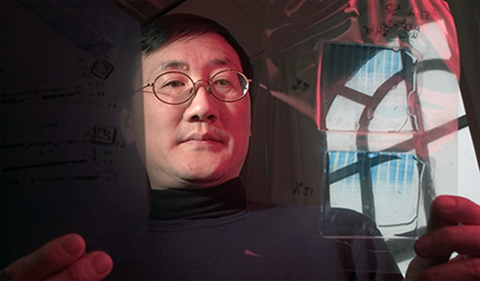From Compass
The National Institute of Environmental Health Sciences has awarded Ohio University scientists Dr. Shiyong Wu and Dr. Lingying Tong a five-year $1.7 million grant to advance research on a potential prevention and treatment for non-melanoma skin cancers.
“Non-melanoma skin cancers are by far the most common type of cancer among all types of cancers—it’s a huge burden for society,” Wu said.
Wu, Professor of Chemistry & Biochemistry, director of the university’s Edison Biotechnology Institute, and a member of the Molecular and Cellular Biology program. Tong is an assistant investigator at EBI. They will study how solar ultraviolet B radiation (UVB) exposure triggers skin cancer and how it can be stopped. Previous research has shown that UVB can impact multiple biological processes—what scientists call “signaling pathways”—in the body.
“The problem with UVB is it affects so many different pathways,” complicating scientists’ efforts to block it from activating cancer growth, Wu explained.
Previous studies by Wu’s lab have found a possible target, constitutive nitric oxide synthase (cNOS), which plays an important role in how the body regulates its response to UVB exposure. The problem with cNOS, Wu found, is that it controls a signaling pathway that triggers cell damage, but also a second pathway that helps the cell survive the attack. Some of the surviving damaged cells eventually could become cancer cells, Wu explained.
The new five-year study will provide a more detailed analysis of the molecular mechanisms behind this cNOS activity. Understanding the biochemical process will allow Wu’s team to explore candidates for skin cancer prevention and treatment. The scientists could test the efficacy of existing drugs on the market, as well as various natural products.
Natural products could be safer for personal health and the environment than sunscreens made from synthetic compounds, Wu said, noting that some conventional sun block products have come under scrutiny in recent years.
Collaborators on the project are Dawn Sammons, Department of Specialty Medicine in the Heritage College of Osteopathic Medicine; Wei Lin, Department of Mathematics in the College of Arts and Sciences; and Hao Chen, New Jersey Institute of Technology.




















Comments